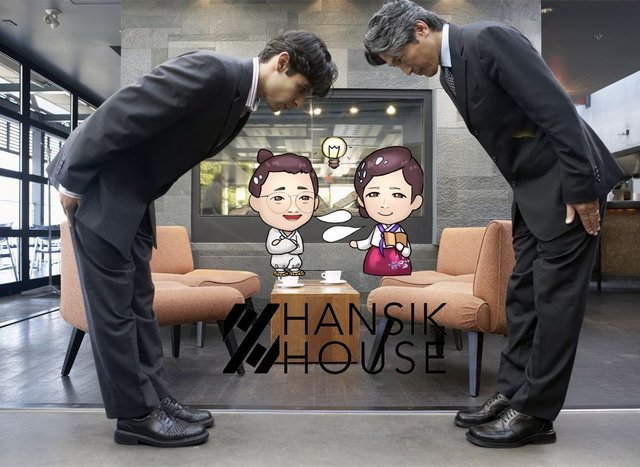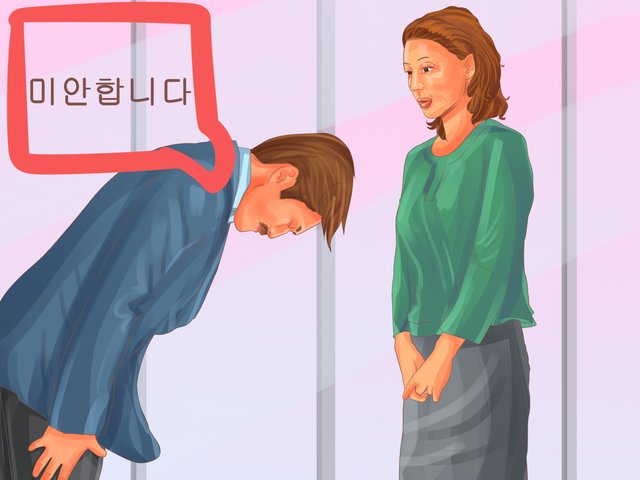A Case Against “Polite Speech” in Korea [Part 1]

Introducing Dr. Jekyll...
For anyone that has studied a bit of Korean, you know that we essentially have two grammatical versions of the language – a formal and informal version. When talking to strangers, older people, higher-ups, and anyone in a position 'higher' than you, you must use “honorifics” when speaking. This changes not only the words you use to address the person, but also the grammatical structure of your sentences and words. When speaking to someone you're familiar/friendly with or someone of an evidently younger age, you use informal speech that is much more loose and shorter.
The lines blur very often and the rules of when to use what type of speech is sometimes unclear. When addressing parents for instance, children will only use a tiny percentage of formal speech unless the parents are more strict and conservative. To gauge to what extent you have a formal relationship with someone is a very nebulous spectrum.

Tyler explains that there is also formal speech in English, all speech. Source: Star Ilbo
But there are many problems with this dichotomy of language. Language is mostly about communication of ideas and meaning, not just about the words used. Though it might seem that switching between the two is like adding “please” to end of a request in english or “very much” to the end of “thank you,” the implications and real-world consequences are much heavier. In this post, I'll describe a bit of how formal speech manifests in Korea and how it can sometimes be harmful to have this system in place.
The Physiological Constraints of Language
To be “formal” to somebody entails much more than adding a few words to a sentence. When talking to an adult or superior for example, this is accompanied by particular physical movements and expected reactions and phrases. Bowing occurs often even in mid-speech to portray acknowledgement and respect. Eyes are lowered when being talked to as well and listeners take on a submission position with tightened shoulders and an arched back.

Source: Wikihow
This of course is very different when speaking casually to family, friends, and younger people. Speech is much more open in this regard without the guarded positions and expressions. Open speech encourages relationships, encourages trust, encourages open discussion and new ideas. Guarded speech, especially one that nurtures guarded physical composure, does the exact opposite. Speech becomes very 1-way, very singular and unaffected by a back and forth because in formal conversation, that circulation of ideas is mitigated.
In Korea, this attitude imbued in the language has tremendously affected daily life and social relationships in Korea. It's becoming ever more apparent how this distorts the social fabric as Korea enters the international cultural scene and there is much more exchange between it and foreign countries. From my perspective and experience, this creates a massive chokehold on potential modern advancements, i.e. the startup sector and general entrepreneurship.

Always with two hands. Source: Media Gadventures
Not performing according to these rules regardless of context or setting is typically seen as an un-nurtured weakness in character. Similar to sneezing without covering your mouth or chewing with your teeth bared is seen as improper etiquette, formal speech and corresponding behavior is implicitly demanded from people around you.
Real-life Consequences
And the effects are not just social or emotional as well. In a number of ways, this type of behavior has directly led to severe moments in history. I'll go into the example tomorrow, about an airplane crash by Asiana Airlines, and illustrate how these relationships can have real regrettable impact on a society.
Til tomorrow, Steem on!
Cover Image sourced from TripSavvy

I think this aspect of korean culture makes it extremely difficult for the social structure of non-koreans. On one hand there are koreans who will accept the foreigners who don't follow these social rules (whether it be lack of culture knowledge or stubornness.). Then you have the ones who force their social statuses on to foreigners because they 'should.' This is one reason why feel like I can never adapt to korean culture even after being here for four and a half years. Befor I moved here I thought speaking korean would be enough to earn my place in society but it isnt enough. I have to think like a korean, which may take a lifetime for me.
Man I could go on for days about this lol
Really love this. I love culture just like we do have here in Nigeria. Different words to address different gender and genre of people. Nice and insightful post. You made me learn a bit about your culture. Thank you.
this is so interesting I had some idea but your explanation was so clear...wow it makes us americans look so sloppy and uncaring
Haha I wouldn't say that... It is a wholly different dynamic though.
very interesting post...
Thanks for sharing it...
upvoted and followed...!!!
Thanks @hamet123!
The national ticket to Korea must be very slogan. Need to spend a lot of time to study it. Polite conversation is very van in communication and business.